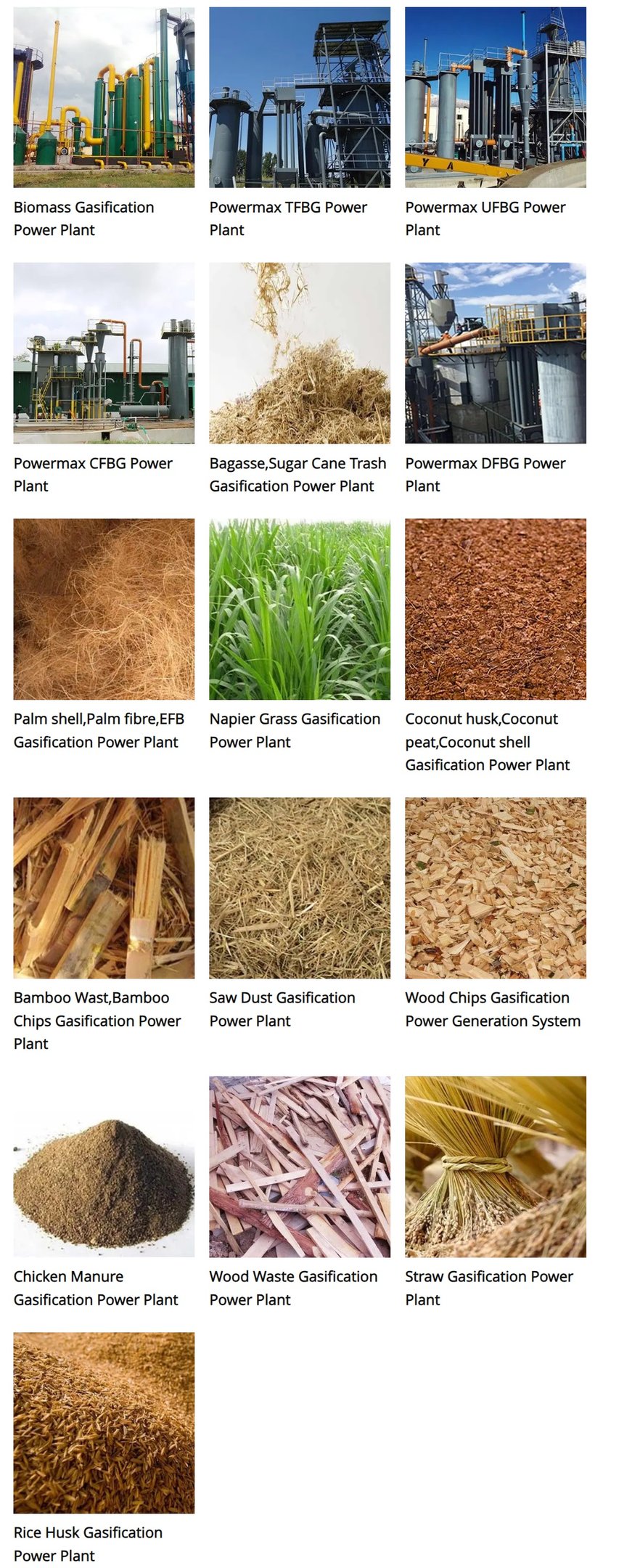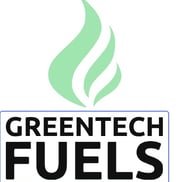GreenTech Fuels Biomass Gasifiers
GreenTech Fuels specializes in the development and deployment of Biomass Gasifiers, which are crucial components in their renewable energy solutions. These gasifiers are designed to convert various types of biomass materials into syngas (synthesis gas), a clean, energy-rich fuel. Biomass gasification is a highly efficient, environmentally friendly way to produce renewable energy and reduce dependence on fossil fuels.
What is Biomass Gasification?
Biomass gasification is a thermochemical process that converts organic material (biomass) into a mixture of gases, primarily carbon monoxide (CO), hydrogen (H2), and methane (CH4), through a partial combustion process in a low-oxygen environment. This gas, known as syngas, can then be used for:
Electricity generation
Industrial heating
Biofuel production (liquid fuels or chemicals)
How GreenTech Fuels Biomass Gasifiers Work:
Feedstock Preparation: The process starts with the preparation of biomass feedstock, such as agricultural waste, wood chips, forestry residues, or even municipal solid waste. These materials are often dried to reduce moisture content, as moisture can reduce the efficiency of the gasification process.
Gasification Process: Biomass is fed into the gasifier, where it undergoes three main stages:
Drying – Removal of moisture from the feedstock.
Pyrolysis – Biomass is heated in the absence of oxygen, breaking it down into volatile gases and solid char.
Reduction – The volatile gases are reacted with steam or oxygen to produce syngas. This is the key process in biomass gasification.
Syngas Production: The resulting syngas consists primarily of carbon monoxide, hydrogen, and methane, which are combustible gases that can be used for energy generation. The composition of the syngas depends on the type of biomass used and the operating conditions.
Cleaning and Conditioning: Syngas typically contains impurities, such as tar, particulates, and other pollutants, which must be removed before it can be used in engines, turbines, or other applications. GreenTech Fuels utilizes advanced gas cleaning systems that ensure the syngas is free from harmful contaminants, making it suitable for efficient energy generation.
Energy Utilization: After cleaning, the syngas can be used for various applications:
Electricity Generation: The syngas is used in gas engines or gas turbines to produce electricity.
Heat Generation: The syngas can also be burned directly to produce heat for industrial processes or district heating systems.
Biofuel Production: Syngas can be further processed into liquid fuels like ethanol or biodiesel or used as a feedstock for chemicals.
Types of Biomass Gasifiers by GreenTech Fuels:
GreenTech Fuels offers a range of biomass gasification systems tailored to different needs and scales of operation. These systems are designed for maximum efficiency and minimal environmental impact:
Small-Scale Biomass Gasifiers:
Ideal for industrial and rural applications, these units are designed to provide localized energy solutions. They can be used in farms, factories, and remote communities where electricity or heat is required but where connection to a central grid may not be feasible.
Typically operate in the range of 50 kW to 500 kW.
Designed to be efficient and scalable to meet the energy needs of smaller facilities.
Medium-Scale Biomass Gasifiers:
These units are suitable for community-scale power generation or for larger industrial facilities that require significant amounts of energy.
Power output typically ranges from 500 kW to 3 MW.
Can be used for both electricity generation and heat production in industries such as paper mills, food processing, and cement plants.
Large-Scale Biomass Gasifiers:
These systems are designed for utility-scale power generation and can generate several megawatts (MW) of power. They are capable of supplying energy to entire communities or large industrial parks.
Often used in large-scale waste-to-energy applications or for large-scale biomass power plants.
Typically integrated with combined heat and power (CHP) systems to maximize energy efficiency.
Waste-to-Energy Biomass Gasifiers:
These gasifiers are designed to handle municipal solid waste (MSW) and other organic waste streams, converting them into valuable energy while reducing landfill use.
The systems are built to handle a variety of feedstocks, including organic waste, agricultural residues, and even non-recyclable plastics.
Benefits of GreenTech Fuels Biomass Gasifiers:
Renewable and Sustainable:
Biomass gasification uses renewable organic materials as feedstock, reducing dependence on fossil fuels and contributing to a sustainable energy future.
Waste Reduction:
Biomass gasifiers help reduce waste volume by converting non-recyclable biomass into clean energy, helping to solve waste disposal problems.
Energy Independence:
These systems contribute to local energy production, helping reduce reliance on centralized fossil fuel-based energy sources and supporting energy independence in rural and industrial regions.
Lower Carbon Emissions:
The carbon dioxide emitted from the combustion of syngas is largely offset by the carbon absorbed by the biomass during its growth, making the process carbon-neutral.
Flexibility in Feedstock:
GreenTech Fuels’ gasifiers can use a wide range of biomass feedstocks, including agricultural residues, forestry waste, municipal solid waste, and other organic materials, making them versatile and adaptable to local resources.
Efficient Power Generation:
The use of combined heat and power (CHP) technology allows for dual use of energy from the syngas, improving overall system efficiency by providing both electricity and heat.
Lower Energy Costs:
Biomass gasification can provide cost-effective energy by utilizing locally available, often inexpensive biomass, reducing energy costs for industries and communities.
Scalability:
GreenTech Fuels' biomass gasifiers can be scaled to meet the specific needs of small, medium, or large-scale operations, offering flexibility and adaptability.
Applications of Biomass Gasifiers by GreenTech Fuels:
Electricity Generation:
Biomass gasifiers can produce electricity for off-grid locations, industrial facilities, and remote communities. These systems are particularly useful in areas where traditional power infrastructure is not available.
Industrial Heat and Power:
Many industrial sectors, such as paper mills, food processing, and cement factories, require heat and electricity for their operations. Biomass gasification offers a sustainable solution for these industries.
Waste-to-Energy:
Biomass gasifiers can be used to convert municipal solid waste (MSW) and agricultural waste into valuable energy, helping communities reduce their waste burden while generating renewable energy.
District Heating:
Biomass gasifiers are suitable for district heating systems, where both heat and power are distributed to multiple buildings, providing sustainable heating solutions for communities.
Conclusion:
GreenTech Fuels’ biomass gasifiers provide a sustainable, cost-effective, and environmentally friendly solution for energy generation. By converting organic waste and biomass into clean, renewable energy, these systems help reduce waste, promote energy independence, and support a greener, more sustainable future. With the ability to scale from small to large applications, GreenTech Fuels’ biomass gasification technology offers flexible and efficient energy solutions for industries, communities, and municipalities.


HOME
ABOUT US
PRODUCTS
PROJECTS
TECHNOLOGY
SOLUTIONS
MEDIA CENTRE
CONTACT US
© 2024. All rights reserved.
PRODUCTS
BIOWATT COMPACT BIOMASS GASIFICATION POWER GENERATION SYSTEM
BIOMASS GASIFICATION POWER PLANT
BIOMASS GASIFIER
BIOMASS CARBONIZER
BIOMASS GASIFIER FOR GREEN-CHEMICAL
BIOMASS GASIFICATION BOILER
BIOMASS CARBONIZATION POWER PLANT
BIOMASS CARBONIZATION BOILER
COAL GASIFICATION POWER PLANT
COAL GASIFIER
WASTE GASIFIER
WASTE GASIFICATION POWER PLANT
SYNGAS GENERATOR SET
PRODUCER GAS GENERATOR SET
BIOMASS GAS GENERATOR SET
COAL GAS GENERATOR SET
GAS PURIFICATION SYSTEM
DECORBONIZATION
GREENTECH SOLAR
NANO HYDROPOWER
GREENTECH BATTERIES
HUSKTECH
CONTACT US
GREENTECH FUELS
GREENTECH HABITAT CENTER
CHOUPARAN, HAZARIBAGH, JHARKHAND, INDIA - 825406
📞 +91 6207423061
📞 +91 9973352599
www.greentechfuels.in
📧 info@greentechfuels.in


